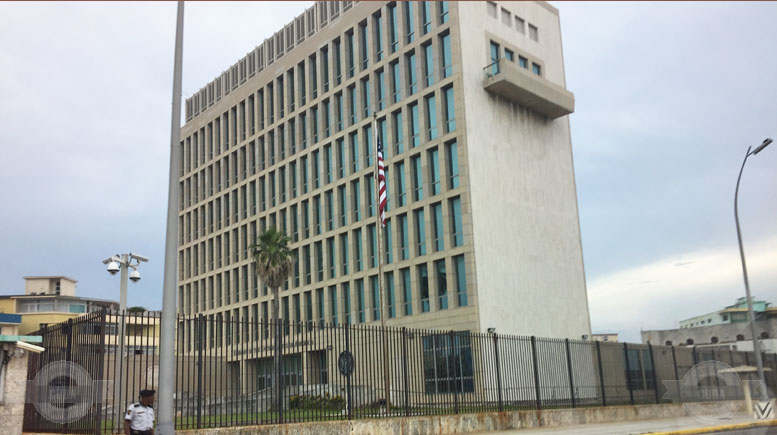“The 40 percent threshold is hardly a detail. On the contrary, it is not even recognized in our science or clinical testing,” said critics of the Scottish study. On August 15, 2018, the U.S. State Department announced yet another measure toward reducing its Havana embassy staff and its effectiveness by limiting the diplomats’ stays to one year. This extremely limited affectation category is normally applied to countries at war, such as Afghanistan and Iraq. The change in U.S. policy is based on a supposed sonic health issue detected by Washington affecting its Havana diplomats. Along with a travel warning for U.S. citizens with regard to visiting Cuba and limited consular services that impact both U.S. citizens and Cubans on the island, the Trump administration has significantly rolled back the Obama-initiated diplomatic relations and consular services thaw. However, on August 23, 2018, the U.S. State Department revised its travel advisory on Cuba to ‘exercise increased caution,’ from ‘reconsider travel.’ While maintaining the same accusatory ‘sonic attack’ terminology, it is the same status alert applied to Germany, France, Denmark, Spain, Italy and England. Is Washington feeling the heat of the debate among scientists in many countries (including the United States itself), which…
TO READ THE FULL STORY:
 Unbiased reporting on economic news and business developments in Cuba by industry sector
Unbiased reporting on economic news and business developments in Cuba by industry sector










